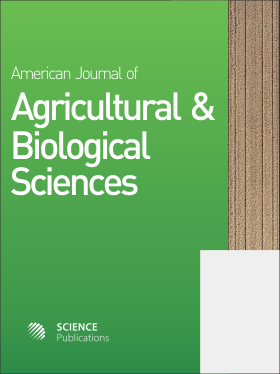Effects of Tillage Methods on Soil Fragmentation in Loamy-Clay Soils
- 1 Department of Agricultural Machinery, College of Agriculture, University of Mohaghegh Ardabili, Ardabil, United States
- 2 Department of Agriculture and Biosystem Engineering, Clemson University, Edisto Research and Education Center, 64 Research Road, Blackville, SC 29817, United States
Abstract
Problem statement: Soil fragmentation is a primary aim in tillage in order to create a favorable soil environment for crop growth. Soil fragmentation is defined as the process of breakdown and crumbling of soil aggregates. Currently, there is no published research data on optimum tillage operations for seedbed preparation in loamy-clay soils of western Caspian Sea region of Iran. Approach: Tests were conducted on a loamy-clay soil near the city of Ardabil, Iran, to investigate the effects of different tillage operations on soil crumbling. Four tillage treatments: Moldboard plow (M) (conventional method), Moldboard plow and Disk-Harrow (MH), Decompactor and Moldboard plow (DM) and De-Compactor and Disk-Harrow (DH) were used in this study with four replications. The tillage depth for all treatments was about 30 cm. Following tillage operations, intensive soil samples were taken from the top 25 cm of soil at 5 cm depth increments and were analyzed for aggregate size and distribution using 9 standard sieves (0.25-19 mm mesh). Analysis of variance was carried out regarding soil crumbling percentage and mean diameter of soil aggregates in each treatment. The experiment was arranged in a split-plot design with five levels of soil sampling depths and two main factors (tillage method and tillage depth) which were arranged in Latin Square design. Results: Results showed that the tillage treatments had a significant effect on soil crumbling. Also, soil crumbling varied with soil depth and the optimum particle sizes were developed at the 5-20 cm soil depth. There was a non-linear correlation between soil crumbling percentage and tillage depth. Conclusion/Recommendations: Tillage methods and soil sampling depth had interaction effect on soil crumbling percentage. The MH treatment had the greatest amount of soil crumbling and the best seed-bed condition.
DOI: https://doi.org/10.3844/ajabssp.2009.131.136

- 6,469 Views
- 4,699 Downloads
- 3 Citations
Download
Keywords
- Tillage equipment combinations
- soil crumbling
- aggregate size
- soil moisture content
